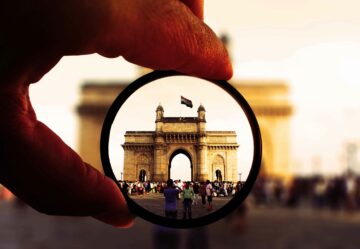South Asia: Regional Dynamics and External Powers

Autumn 2025
Register now through Peppi or Sisu system! Read more about the application process!
- Registration period: 29.09.2025 01.00 – 19.10.2025 22.59
- Course study time: 27.10.2025 – 21.12.2025
Level: Advanced
Language: English
Organizer: Centre for East Asian Studies, University of Turku; Asia Center of the University of Tartu, Estonia
Credits: 3 ECTS
Contact person: University lecturer Outi Luova, outi.luova[at]utu.fi
Goals:
Throughout this course, participants will develop a comprehensive understanding of the regional dynamics and external influences shaping South Asia. They will critically analyze various approaches to South Asian studies, examining socioeconomic relations and cultural aspects between countries in the region.
Furthermore, students will explore the roles and impacts of major external powers in India and Pakistan, including China, the United States, the European Union, and Russia. The course will delve into the complexities of the war in Ukraine, analyzing perceptions in South Asian countries through a postcolonial lens and examining the China-India-Russia power triangle’s implications on energy, security, and military presence.
The final section on environment and climate will focus on selected South Asian countries, addressing critical issues such as food security, freshwater resources, CO2 emissions, energy, and technology transfer. Overall, participants will gain a nuanced understanding of regional dynamics, external influences, and the environmental challenges that characterize South Asia.
Contents:
The course will start with an introductory module covering diverse aspects of South Asian regional dynamics, including approaches to understanding the region, socioeconomic ties, and the influence of religion and culture. This section will incorporate a visual timeline and a slideshow featuring key historical figures.
The subsequent section will analyze the roles of major external powers in India and Pakistan, with a detailed examination of China, the United States, the European Union, and Russia. Following this, the course will explore the South Asian perspective on the war in Ukraine, specifically focusing on the China-India-Russia power triangle and its implications.
The final module will concentrate on environmental and climate issues in selected South Asian countries, addressing challenges, opportunities, and best practices. Topics such as food security, freshwater resources, CO2 emissions, energy, and technology transfer will be explored in the context of cooperation and competition in geopolitics. Overall, the course contents aim to provide a comprehensive and in-depth understanding of South Asian regional dynamics and external influences.
Structure:
I. Introduction to Regional Dynamics
II. External Powers/Main Foreign Players in India and Pakistan
III. The War in Ukraine
IV. Environment and Climate
Taken as:
One quiz in each module, and a learning diaries (4 x ca 1000 words). The content is divided into modules that are taken according to the given sequence and schedule.
Preconditions for participation: Basic knowledge about South Asia. For example the Asia Network course “Johdatus Etelä-Aasiaan”.
Registration: Degree students from the member universities of the Finnish University Network for Asian Studies can register for this course during the registration period through their university’s own Peppi or Sisu systems. Other students can apply for non-degree self-paying study right to the University of Turku. All eligible students are accepted to these courses. Read more about the application process!
This course has a maximum intake of 40 students. Students are selected in the order of application. The places are divided evenly between the member universities of the Network.
Starting the course: On the first day of the course, you will receive a welcome message from the teacher, including a link to the course webpage.
Picture: Pexels/ Darshak Pandya
